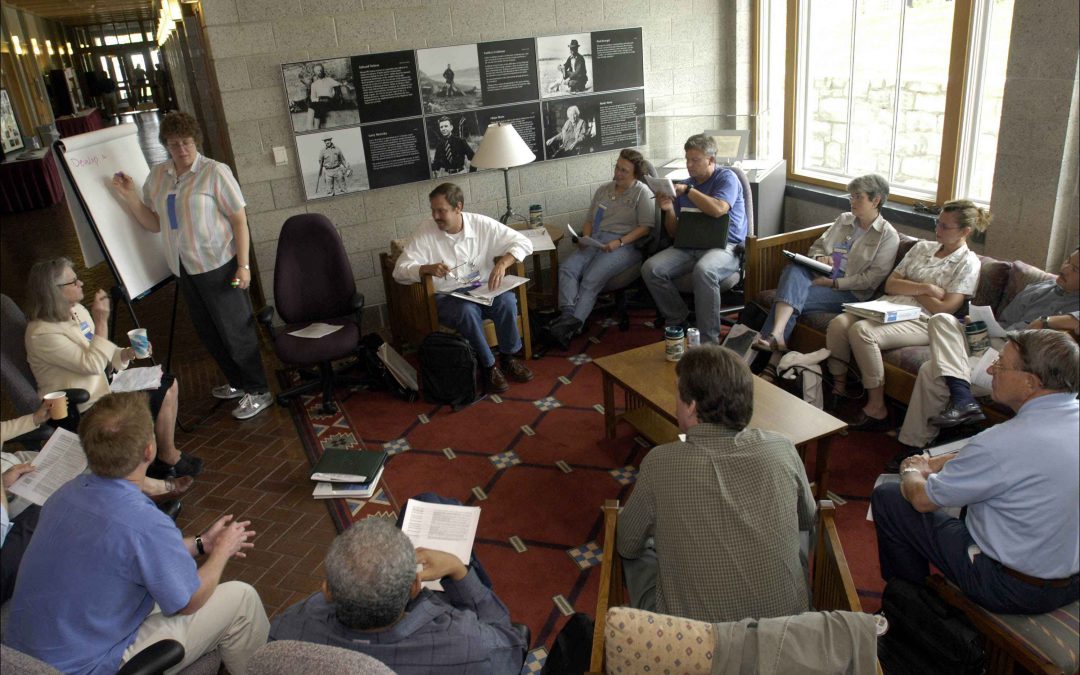
by Gary Reinecke | Sep 30, 2019 | Coach Training, Leader Development, Personal Development |
Are you looking for a way to accelerate your path to becoming a GREAT coach? A way to learn secrets master coaches wish they knew when they first started, without taking decades to get there?
This month, Google’s David Peterson and ICF Co-founder David Goldsmith will host a complimentary masterclass called Foundations of Great Coaching: Start Fast and I’d love you to be my guest.
In this live masterclass, David & David will show you how to get to the heart of client challenges in less time. You’ll discover how to focus on their most urgent needs first, build rapport faster, and position yourself powerfully as a leadership coach.
This masterclass will profoundly impact the way you coach!
Register for Foundations of Great Coaching: Start Fast Masterclass CLICK HERE.
If you’re interested, I recommend that you sign up on the Wait List so that you can block-out the time on your schedule as soon as the information is available.
Feel free to share your thoughts with me on this session! Looking forward to hearing from you.
Courage,
Gary Reinecke

by Gary Reinecke | Sep 23, 2019 | Church Growth, Disciplemaking, Leader Development |
People learn to discover and follow Jesus in community. Few environments do that better than a small group. This begs the question, what did Jesus focus on when he trained His disciples.
Jesus was a disciplemaker and leader developer.
Excellent small groups do these two things consistently:
- Make Disciples
- Train Leaders
I have learned that people benefit when they understand what a “win” is for one process (disciplemaking) and a “win” for the other (leadership development). I have also learned that these two areas bleed into each other. I love the phrase Neil Cole coined: “Raise the bar of discipleship and lower the bar for leadership”. I have one other nuance to add:
Clarify the developmental path so people know where they are and where they are going!
What does excellent “people development” look like?
In the small group I lead with my wife, Gina, we have established a nourishing environment for people to navigate their disciplemaking journey. Just as critical, we have communicated that we are looking for a few good leaders to reproduce our group. I find the clearer we define the “win”, the more secure people feel and confident they are knowing where they are in their development. BTW – these two processes continue throughout our lifetimes – right?
Here are two developmental processes that simplify the people development process for:
Three questions to strengthen people development process in your small group:
- What behaviors does a fruitful disciple demonstrate as a disciple of Jesus?
- What behaviors does an effective leader demonstrate as a leader?
- What does that developmental process look like for a:
Please respond below if you have a process you follow for either:
- Disciplemaking
- Leadership Development

by Gary Reinecke | Sep 13, 2019 | Church Growth, Leader Development, Personal Development |
People learn to discover and follow Jesus in community. Few environments do that better than a small group. This begs the question, what did Jesus model for His disciples.
Small Groups do these two things with Excelllence:
- Care for People
- Develop People
Caring for people is with the whole person in mind.
What does excellent “pastoral care” look like?
In the small group I lead with my wife, Gina, we have established a “care-net” for the members of our group. What does that mean:
- when a person has a need, members are quick to respond
- when a person misses a small group event, they receive a call
- when a person shares a challenge they are facing, we pray
The list goes on; but you get the idea.
Three reflection questions to strengthen the “care-net” in your small group:
- What needs are we currently meeting in our small group?
- What other needs should we be more aware of at this time?
- How can we meet this new need and expand our “care-net”?
Next time I’ll discuss the second item on the list above: “Develop People”.

by Gary Reinecke | Sep 6, 2019 | Church Growth, Church Multiplication, Disciplemaking, Leader Development |
Of all the areas that will contribute to a healthy church, small groups are one of the most impactful. In fact, in the book Natural Church Development, under the section of Holistic Small Groups, you will discover an interesting factoid based on the data measuring over 170 variables. The most important element contributing to the growth of the church, based on over 4.2 million survey answers, is the multiplication of small groups. It is the environment where all of the elements of a healthy church interplay. Below are two things great small groups do to make more and better disciples.
Provide Excellent Pastoral Care
We can tell story after story from our church community of how people have been cared for during difficult times in their life. Helping a cancer patient die with dignity, supporting a newly widowed mom through the sudden loss of her husband – while still caring for her young ones, loving divorced spouses to move on, helping a parent hope again after losing a child; and the list goes on and on. The beauty is the first person, people in our church call when they are in need is their small group leader OR better yet, members of their small group.
Robust Leadership Development Process
Highly relational coaches provide the support, encouragement and training to develop small group leaders in our church community. We have an orientation session that lasts a couple of hours for new small group leaders. But training happens “just in time” as leaders lead their group. I’ve found that the periodic calls we receive from our coach gives the level of support needed in about 90% of the situations we find ourselves. The remaining 10% need pastoral intervention when the situation warrants it; but that is not the norm.
Recently we kicked-off the fall Small Group season in our church community. You can see more of what we do in small groups when you CLICK HERE. When I asked our pastor, Steve Redden, the key to the small group DNA at Crosspoint he said two things stand out:
- From day one, small groups were the priority and no other ministries compete on the same evening as small groups.
- From day one, Steve has led a small group focused on new people with the intent of handing leadership over to an emerging leader from the group, so that he and his wife can start a new group.
Small groups that provide excellent pastoral care and a robust leadership development process are contributing to the vision – more and better disciples. Multiplication at the most fundamental level of disciplemaking and small groups is a good thing! These helpful tips are intended for you if you are wondering where to start or the next step you need to take to move your small group ministry forward.

by Gary Reinecke | Sep 3, 2019 | Coach Training, Leader Development, Personal Development |
When Gina and I were married 25+ years ago we discussed and subsequently, researched a new hobby that we would like to learn together. The hobby we chose was mountain biking. We asked a friend what we needed; we bought two bikes, helmets, gloves and gear. Little by little we learned some of the finer points of our new hobby. We even bought a book and trained early in the morning to beat the heat in Phoenix to practice our skills.
25+ years later we are still learning new techniques that help us raise our riding skills.
About a month ago I was given a mountain bike magazine from Great Britain. In it was an article that caught my attention. It reminded readers of techniques for riding aggressive downhill trails. The tendency when going down a steep decline is to lean back. In contrast, the best way to ride an aggressive downhill trail is to stay on your seat, lean forward and bend your arms.
These tips have helped me immensely!
Take that same approach to coaching. If you have gone through a basic coach training course you undoubtedly know the importance of listening and asking questions. One thing I’ve discovered is that many leaders simply forget. I would like to remind you of the basics again. Read THIS BLOG as a refresher to the Five Shifts of a Great Coach.
Going back, reviewing the basics can make a BIG difference.




